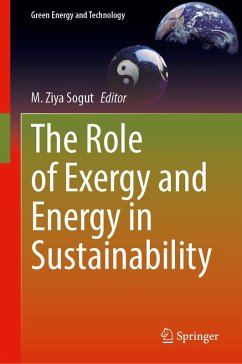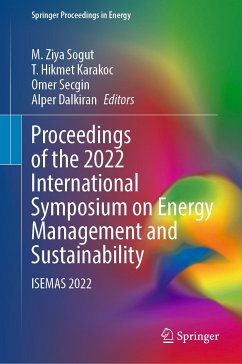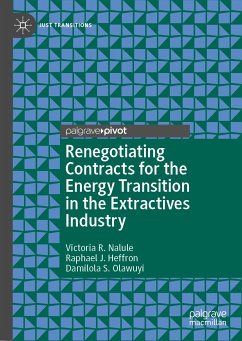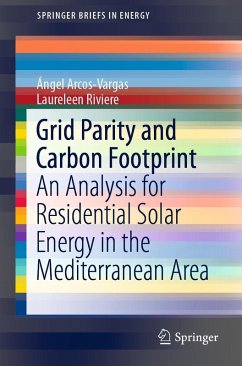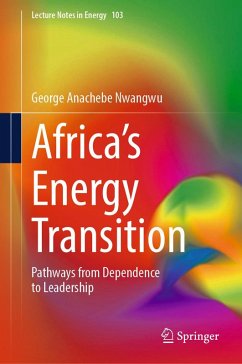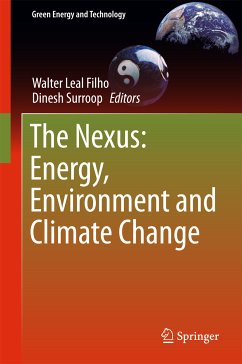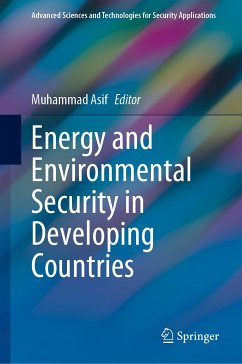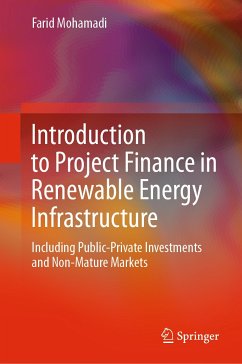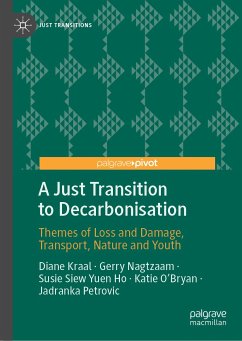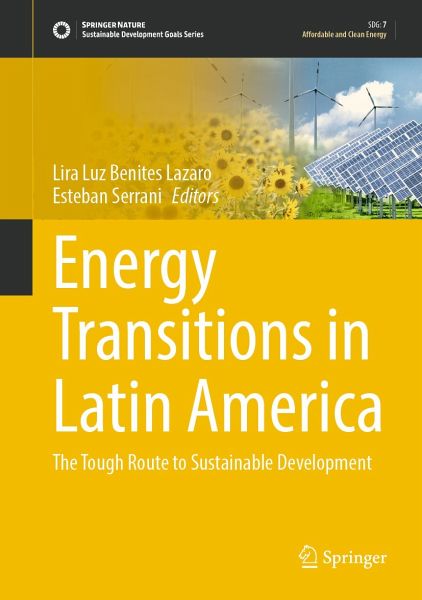
Energy Transitions in Latin America (eBook, PDF)
The Tough Route to Sustainable Development
Redaktion: Lazaro, Lira Luz Benites; Serrani, Esteban
Versandkostenfrei!
Sofort per Download lieferbar
128,95 €
inkl. MwSt.
Weitere Ausgaben:

PAYBACK Punkte
64 °P sammeln!
This book comprehensively analyzes the challenges and opportunities associated with transitioning to sustainable energy systems in Latin America. Recognizing that energy transition goes beyond mere changes in energy systems, it is also essential to address the imperative of ensuring a just transition and equitable benefits for all, particularly for vulnerable populations. This recognition emphasizes prioritizing social equity and inclusivity throughout the energy transition process. By adopting a critical perspective grounded in multidisciplinary approaches from the social sciences, the book d...
This book comprehensively analyzes the challenges and opportunities associated with transitioning to sustainable energy systems in Latin America. Recognizing that energy transition goes beyond mere changes in energy systems, it is also essential to address the imperative of ensuring a just transition and equitable benefits for all, particularly for vulnerable populations. This recognition emphasizes prioritizing social equity and inclusivity throughout the energy transition process. By adopting a critical perspective grounded in multidisciplinary approaches from the social sciences, the book delves into the complex energy transition issues, exploring the broader social, economic, and political dimensions involved.
The book is divided into four parts. Part I highlights the changing energy mix in Latin America and the geopolitical implications of the increasing reliance on renewable sources. Part II examines the dilemmas faced by countries that rely on oil and gas revenues andthe obstacles they face in transitioning to a low-carbon economy. Part III analyzes the production, technology, and costs as limits and opportunities for energy transition and adoption of renewable energies. Finally, part IV explores energy access and the democratization of energy generation in Latin America, including efforts to address energy poverty, the growth of distributed energy, and prosumers.
Energy Transitions in Latin America: The Tough Route to Sustainable Development is a valuable resource that will benefit researchers in energy studies and policymakers alike. It serves as a comprehensive guide for those seeking to navigate the complexities of energy transitions. It is an essential source for fostering informed decision-making and driving sustainable development in the region.
The book is divided into four parts. Part I highlights the changing energy mix in Latin America and the geopolitical implications of the increasing reliance on renewable sources. Part II examines the dilemmas faced by countries that rely on oil and gas revenues andthe obstacles they face in transitioning to a low-carbon economy. Part III analyzes the production, technology, and costs as limits and opportunities for energy transition and adoption of renewable energies. Finally, part IV explores energy access and the democratization of energy generation in Latin America, including efforts to address energy poverty, the growth of distributed energy, and prosumers.
Energy Transitions in Latin America: The Tough Route to Sustainable Development is a valuable resource that will benefit researchers in energy studies and policymakers alike. It serves as a comprehensive guide for those seeking to navigate the complexities of energy transitions. It is an essential source for fostering informed decision-making and driving sustainable development in the region.
Dieser Download kann aus rechtlichen Gründen nur mit Rechnungsadresse in A, B, BG, CY, CZ, D, DK, EW, E, FIN, F, GR, HR, H, IRL, I, LT, L, LR, M, NL, PL, P, R, S, SLO, SK ausgeliefert werden.



